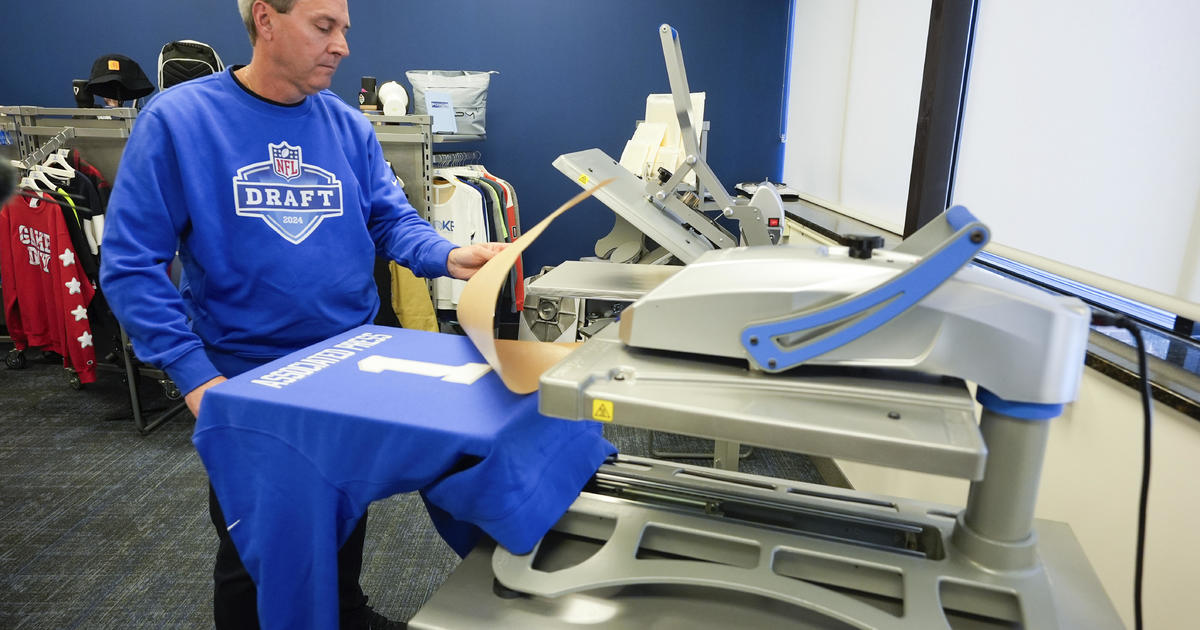U-M Creates State's First Human Embryonic Stem Cell Lines
ANN ARBOR (WWJ) - University of Michigan researchers have created the state's first human embryonic stem cell lines that carry the genes responsible for inherited disease.
The achievement will enable scientists here to study the onset and progression of genetic disorders and to search for new treatments.
"All our efforts are finally starting to bear fruit," said Gary Smith, co- director of the U-M Consortium for Stem Cell Therapies and leader of the cell-line derivation project. "Creating disease-specific human embryonic stem cell lines has been a central goal of the consortium since it was formed two years ago, and now we've passed that milestone."
One of the lines carries the genetic defect that causes hemophilia B, a hereditary condition in which the blood does not clot properly. The other carries the gene responsible for Charcot-Marie-Tooth disease, a hereditary neurological disorder characterized by a slowly progressive degeneration of the muscles in the foot, lower leg and hand.
If embryos are created for reproductive purposes but are found to be unsuitable for that use because they carry disease, Michigan law allows those embryos to be donated for research instead of discarding them. At that stage of development, the donated embryos consist of a cluster of cells about the size of the period at the end of this sentence.
"These are the first of many disease-specific human embryonic stem cell lines that researchers at the U-M Consortium for Stem Cell Therapies intend to develop," said consortium co-director Sue O'Shea, a professor of cell and developmental biology at the Medical School.
In the months and years ahead, donated embryos will be used to create cell lines that carry the genes responsible for myotonic dystrophy, Huntington's disease, Rett syndrome, spinal muscular atrophy and Tay-Sachs disease, for example.
"We will be one of the few institutions in the country to be creating embryonic stem cell lines targeted at understanding and treating specific inherited diseases," says Dr. Eva L. Feldman, director of the U-M's A. Alfred Taubman Medical Research Institute.
"These stem cell lines hold so much promise for medical science, and for this reason, they will be of tremendous interest to researchers around the world," says Feldman.
"The creation of these cell lines will provide a new tool that will help the international scientific community improve the treatment of these diseases," said Sean Morrison, director of the U-M Center for Stem Cell Biology.
The creation of all three lines was made possible by Michigan voters' November 2008 approval of Proposal 2, a state constitutional amendment permitting scientists here to derive human embryonic stem cell lines using surplus embryos from fertility clinics.
The U-M joins a small handful of U.S. universities that are creating disease-specific human embryonic stem cell lines.
For more information click on any of the links below:
U-M stem cell research: http://www.umich.edu/stemcell
A. Alfred Taubman Medical Research Institute: http://www.med.umich.edu/taubmaninstitute/
NIH Human Embryonic Stem Cell Registry: http://grants.nih.gov/stem_cells/registry/current.htm



